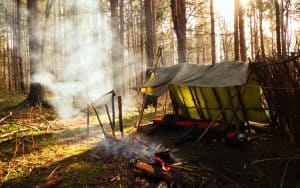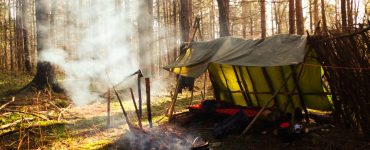What will you do if you find yourself in the wild, alone, cold, and with nothing at all? Will you be able to survive?

Outdoor enthusiasts know that survival in the wilderness is not an easy feat. However, it isn’t really impossible. As long as you are armed with the right skills and knowledge on how to survive in the wild with nothing, you can be sure that you will make it out of the wilderness safe and sound.
Wilderness Survival Shelter for Warmth
Did you know that dehydration or starvation is not the main cause of fatalities in the wilderness? It’s actually hypothermia. You can be at grave danger if you are wet. Thus, the first thing you have to do is to find shelter.
It doesn’t matter if it is summer because even the smallest amount of rain can make you suffer from hypothermia. Look for a natural shelter, such as a spot up against some rocky outcropping, or a down tree that has dry ground below it. You enhance it further by putting some branches and piling on some debris against the primary structure.
Staying dry is the most crucial thing about shelter. When you can keep yourself dry, you will do well. Find shelter, stay warm, and stay dry.
Fun Outdoor Quiz
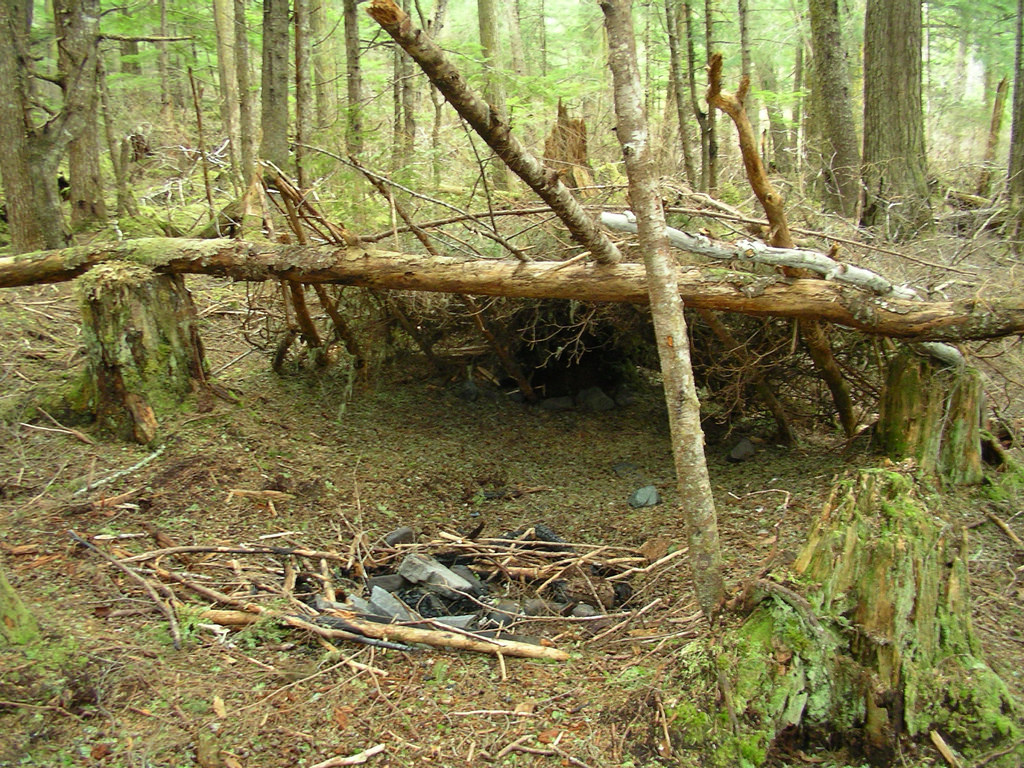
Find Water Sources Quickly
While you can save yourself from freezing to death on cold nights, you will never last a few days if you don’t have water. Signs of dehydration can start in just a matter of hours after your last drink, and these include headache, low energy, muscle cramps, dizziness, and loss of consciousness. Rainwater is mostly safe to drink. You can easily collect this using waterproof jacket, or you can drink this straight from non-toxic leaves.
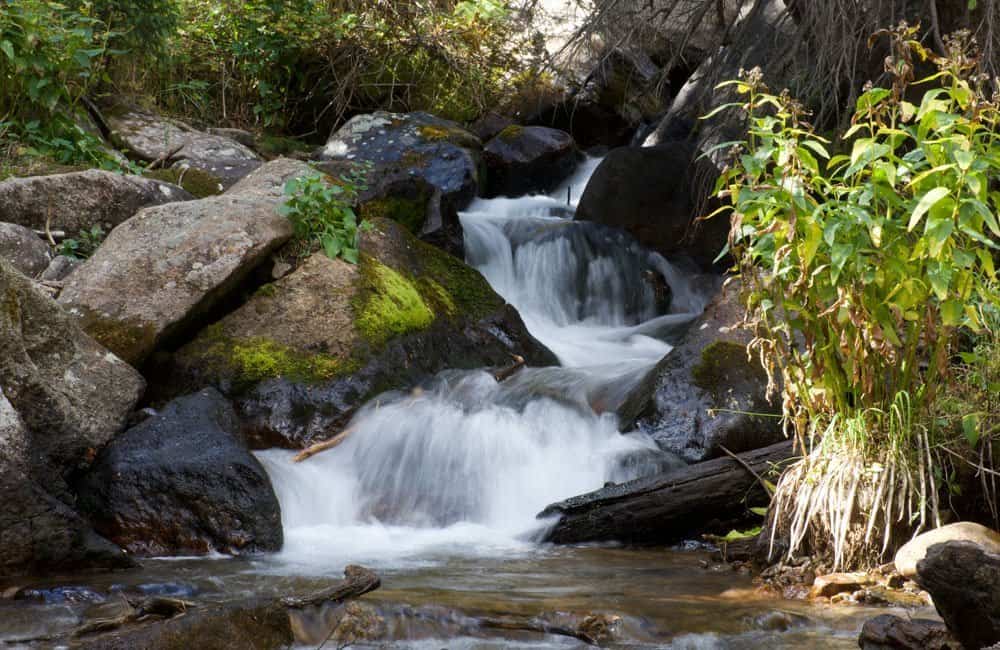
Rainwater is among the only untreated sources of water that you will feel comfortable to drink, unless of course when the area you are in is highly polluted. If you are in a season or climate with no rainwater, you have to look for an alternative. Boiling water is another reliable option. You can collect this from sources free of chemicals. Clearer water is better.
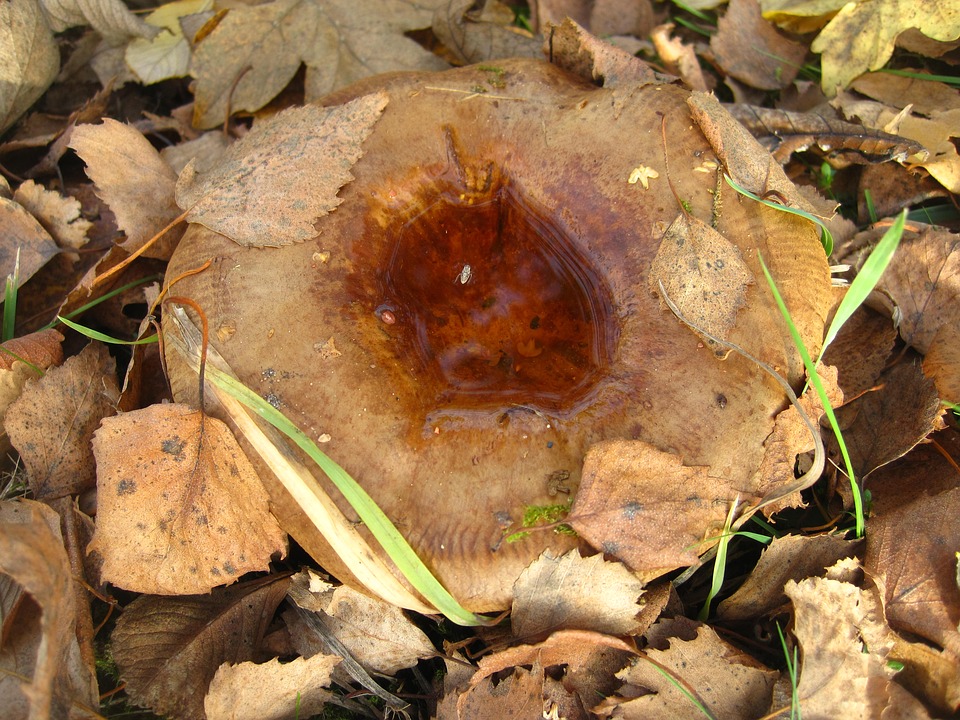
Source: https://pixabay.com
See to it that you bring to a rolling boil any water that you intend to drink. There are even some sources that state that you have to keep the water boiling for as long as 20 minutes. After all, it’s better safe now than sorry later. You can collect your drinking water in things that don’t leak. This could be an old steel pot left behind by other campers, or your waterproof jacket that you can shape into a holding vessel.
Search for Food to Eat
With a shelter and some water, you are now on your way to surviving several weeks in the wild. Humans can go for weeks with no food so it is among the least important aspects of short term survival.
But, food is the one that offers you your much needed energy. This helps keep your body warm. This gives you the focus and strength to boil water, create tools, improve your shelter, and make fire.
If you will go for several weeks with no food, you will have extremely low energy levels that it will be hard for you to function and go about with your daily survival tasks.
The secret on how to survive in the wild with nothing is to make the most out of survival food by being opportunistic and efficient. It means that you have to focus on those foods that have the highest energy concentration and are easy to find at the same time.
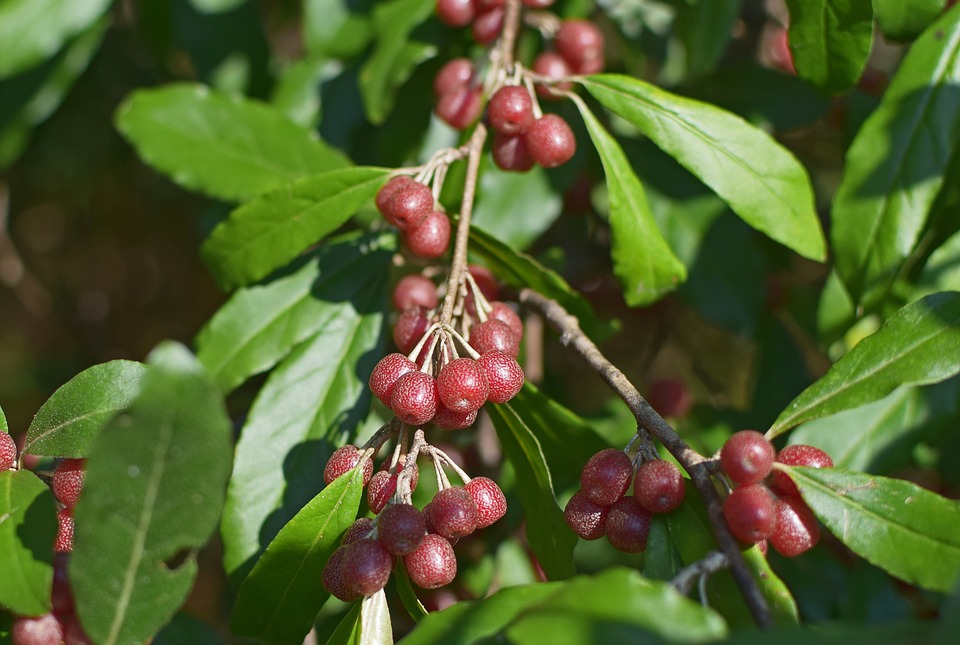
Source: https://pixabay.com
Check out these ideas to help you out:
- Search for nut trees. Try to spend some time to get to know the local species of trees, specifically those with high calorie food value such as acorns.
- Learn the trees with edible inner bark. It is probably your most abundant energy source for survival food. This may not really taste that good, but if you are out in the wild, there’s a good chance that you have an infinite supply, not to mention that it is also very easy to harvest.
- Berries can be great food for survival. You can gather these in abundance with the least effort. It is where your innate naturalist skills can come in really handy. Natural sugars in berries can boost your energy levels, provided that you stay away from the poisonous ones.
- Gather only those low energy foods such as edible flowers and salad greens when you are travelling to collect firewood, shelter materials, and water. Never go too far out of the way to eat such things. They might be nutritious but are still not worth of your calorie outputs for you to go searching for them far and wide.
- Look for a throwing stick and carry this everywhere. You are after the perfect balance of dangerous and heavy and easy to throw. Use this opportunistically for catching small mammals such as squirrels, rabbits, and others, but never depend on it completely.
Prepare Yourself for Survival
Although learning how to survive in the wild for nothing is easy and possible, you will be much better off if you are prepared for the worst.
Below are a few things you can do to gear yourself up for any survival situations where you might need a few gadgets or tools.
- Create your own survival shelter and sleep inside it. Start building in warm weather and return to it several times. Make a few tweaks every now and then and camp in there during harsher conditions.
- Learn the bow-drill. This is the easiest way for making fire using friction.
- Prepare a basic survival kit. Even the tiniest amount of the basic materials can make a big difference during survival situations.


